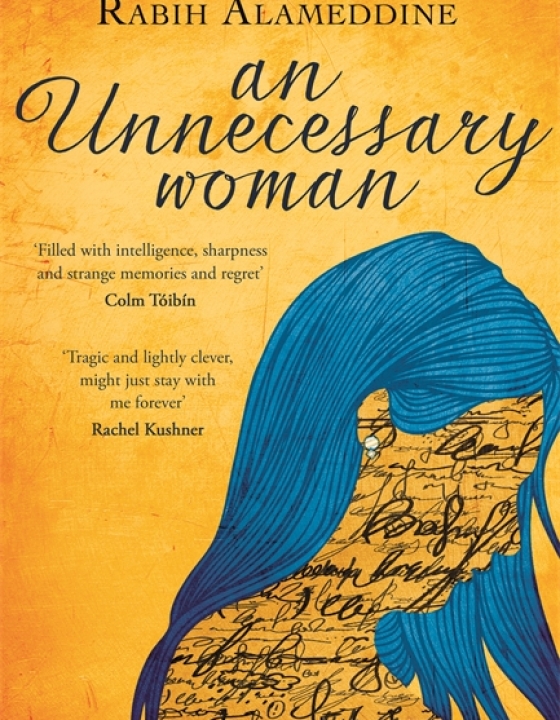„The Forty Rules of Love” is the novel through which I discovered Elif Shafak. So far, I wasn’t disappointed by any of her books, but this one in particular enchanted me, this one was „the voice in the desert”. I wrote the review in August 2012. A lot has happened since then. A lot has changed. Except the thing that moves all things forward in this world: love. Just like the book, once it’s arrived, love doesn’t change. It changes us. Enjoy!
“If you are seeking, seek us with joy, for we live in the kingdom of joy”, Mawlānā Jalāl ad-Dīn Muhammad Rūmī
What could possibly have in common Ella, a blasé housewife of today’s Massachusetts with Rumi, the Persian mystic of the thirteen century? On the eve of celebrating 40 years of age, Ella attempts to return to work and begins collaboration with a publishing agency. The manuscript on which she should express her opinion, entitled Sweet Blasphemy, is an introduction to Sufism regarded as an inner, esoteric dimension of Islam, surprising its essence, translating its message of life, divinity, oneself. Ella enters an exotic world, centered on the story of the meeting and the deeply transforming spiritual connection between Shams of Tabriz, the wandering dervish, and Rumi, the “prince of Sufi poets”, founder of the Mevlevi dervishes Order.
Intrigued by the profound reading and shaken from her numbing self-sufficient cynicism, Ella initiates an unexpected correspondence with Aziz Zahara, author of the novel, a modern Sufi and a cosmopolitan biker, which leads to implications harmoniously correlated to the changes in her life.
Two stories take place in parallel, one now and the other in the past, connected by the same thing, love – a liberating stream which engages in its flow the lives of not only direct participants, as the story from the past takes shape through chapters written in the first person, lined into the fabric of each character’s perception, all joined together, for everyone has his part to play – as primary character, secondary, or merely simple witness to the events. The major impact of the two stories is determined by the imminent transformation brought about by spiritual love, with all its consequences, some of which are not nice at all, in terms of the laws of society, common sense, and even the preservation instinct.
This book succeeds exceptionally at marking the difference between religion and spirituality. Beyond dogma, beyond constraint, beyond the strictness of rigid rules, comes understanding and through it, access to intrinsic wisdom and the plenitude of knowledge contained in accepting the road that unfolds itself, leading to the inner truth. The 40 laws of love set by Shams are likely to inspire and they’re worth gone over at least for the benefit of placing the reader in an authentic state of reflection. It becomes interesting such a religion of love, somehow different from all the world religions, which obviously contradicts, disturbs and attracts chain reactions over the centuries. And if all of these are nothing more than speculative-interpretative considerations, the book is to be remembered for the cleverly delivered image of the wandering dervish who seeks God everywhere while carrying Him within himself, for the history of the beginning of the whirling dervishes’ mystical dance, samâ, and, finally, for the story of Rumi, the one who said “Many paths lead to God, I have chosen that of dance and music.”
Elif Shafak is a writer of Turkish origin born in France, currently professor in the Department of Middle Eastern Studies at the University of Arizona. Elif is considered one of the great revelations of contemporary Turkish literature; she was awarded the honorary title of Knight of the Order of Arts and Letters. Written in Turkish or English and translated into over thirty languages, her novels enjoy great success, as well as her volumes of short stories and non-fiction. Her literature joins and combines Eastern and Western traditions, leading to a kind of universal book, equally appreciated by readers of both cultures.
Also published in Airport News magazine.
“Dacă ne cauți, caută-ne cu bucurie, căci noi suntem locuitorii împărăției bucuriei”, Mawlānā Jalāl ad-Dīn Muhammad Rūmī
Ce poate avea în comun Ella, o gospodină casnică și blazată din Massachusetts-ul zilelor noastre, cu Rumi, misticul persan din secolul al XIII-lea? În pragul împlinirii a 40 de ani, Ella încearcă să-și reia activitatea profesională printr-o colaborare cu o agenție editorială. Manuscrisul asupra căruia trebuie să-și exprime opinia, intitulat Dulce Blasfemie, reprezintă o introducere în sufism, privit ca dimensiune interioară, ezoterică a Islamului, surprinzându-i esența, traducându-i mesajul în raportarea la viață, la divinitate, la propria persoană. Lumea exotică în care pătrunde Ella este centrată pe povestea întâlnirii și legăturii spirituale adânc transformatoare dintre dervișul rătăcitor Shams din Tabriz și Rumi, „prințul poeților sufi”, întemeietorul ordinului dervișilor mevleviți.
Intrigată de lectura profundă și scuturată din amorțeala cinismului ei autosuficient, Ella inițiază o corespondență neașteptată cu Aziz Zahara, autorul romanului, un sufit modern, motociclist și cosmopolit, fapt care dezvoltă implicații armonios corelate cu schimbările din viața ei.
Două povești se derulează în paralel, una în prezent, cealaltă în trecut, întâlnindu-se în același punct al iubirii – șuvoi eliberator care angrenează în curgerea sa viețile, nu doar ale participanților direcți, căci povestea din trecut se conturează prin capitolele scrise la persoana întâi, înșiruite într-o țesătură a percepțiilor fiecărui personaj, principal, secundar sau simplu martor al evenimentelor, având, fiecare, rolul său. Impactul major al celor două povești este determinat de iminența transformării adusă de iubirea spirituală, cu toate consecințele sale, unele deloc drăguțe, privind din perspectiva legilor societății, ale bunului simț, și chiar ale instinctului de conservare.
Ce reușește în mod excepțional această carte este să marcheze diferența dintre religie și spiritualitate. Dincolo de dogmă, dincolo de constrângere, dincolo de strictețea unor reguli rigide apare înțelegerea, și prin ea, accesul la înțelepciunea intrinsecă și la bogăția cunoașterii cuprinse în acceptarea drumului care se dezvăluie singur, conducându-te la propriul adevăr. Cele 40 de legi ale iubirii enunțate de Shams sunt de natură să inspire și merită parcurse măcar pentru beneficiul punerii cititorului într-o autentică stare de reflecție. Devine cel puțin interesantă o astfel de religie a iubirii, cumva altfel decât toate religiile lumii, care, evident, contravine, deranjează și atrage după ea reacții în lanț întinse peste veacuri. Iar dacă toate acestea nu sunt mai mult decât considerații speculativ-interpretative, e de reținut această carte fie și pentru imaginea abil transmisă a dervișului rătăcitor care îl caută pe Dumnezeu peste tot, purtându-l în sine, pentru istoria apariției dansului mistic al dervișilor rotitori, samâ, și, în cele din urmă, pentru povestea lui Rumi, cel care spunea “Multe căi duc la Dumnezeu, eu am ales-o pe cea a dansului și a muzicii”.
Elif Shafak este o scriitoare de origine turcă născută în Franța, în prezent profesoară la Departamentul de Studii despre Orientul Apropiat al Universității din Arizona. Elif este considerată una dintre marile revelații ale literaturii turce contemporane, fiind distinsă cu titulatura onorifică de Cavaler al Ordinului Artelor și Literelor. Scrise în turcă sau engleză și traduse în peste treizeci de limbi, romanele sale se bucură de un mare succes, la fel ca și volumele de povestiri sau non-ficțiune. Literatura ei alătură și îmbină tradițiile orientale și occidentale, reușind un gen de carte universală, deopotrivă gustată de cititori din ambele culturi.
Publicat și în revista Airport News.


















What do you think?
You must be logged in to post a comment.